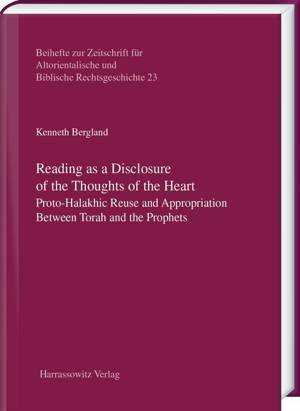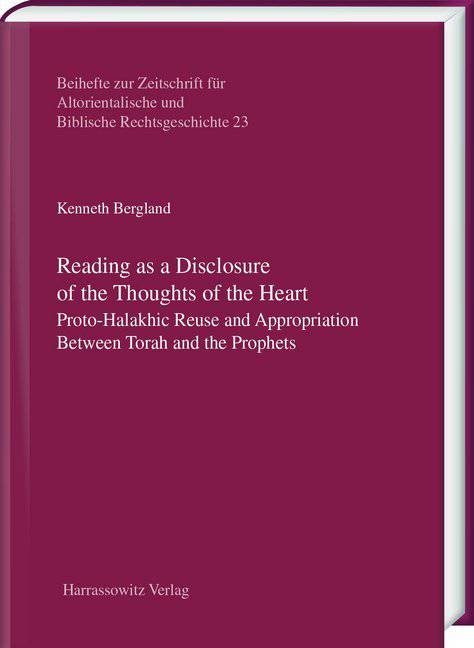
- Retrait gratuit dans votre magasin Club
- 7.000.000 titres dans notre catalogue
- Payer en toute sécurité
- Toujours un magasin près de chez vous
- Retrait gratuit dans votre magasin Club
- 7.000.0000 titres dans notre catalogue
- Payer en toute sécurité
- Toujours un magasin près de chez vous
Reading as a Disclosure of the Thoughts of the Heart
Proto-Halakhic Reuse and Appropriation Between Torah and the Prophets
Kenneth Bergland
Livre relié | Anglais | Beihefte zur Zeitschrift für Altorientalische und Biblische Rechtsgeschichte | n° 23
219,45 €
+ 438 points
Description
How should we then live? The present volume explores how this question may be answered by learning from biblical authors how they read normative texts. This study therefore goes beyond questions of how the Bible can function as norm for contemporary ethics, biblical law, reuse and direction of dependence within the Bible, and the memorization of revered texts in the ANE. It rather combines research within these areas in a quest for forms of life reading the biblical texts as close as possible to how they were intended by their authors. This volume argues that Torah is best characterized as normative covenantal instruction, and that Torah and the Latter Prophets participated in a scribal culture that did not conform to our standards of literary exactness. Repetition with variation is found to be typical in texts that reuse a normative text. Neither conflict nor harmony can adequately explain this phenomena. In the borrowing text, we rather see a close reading that reads its source(s) expansionistically. There is an interpretative response interwoven with the reading along with various trajectories the borrowing author would have viewed as indicated in the very source(s) themselves. The cases studied attest to the importance of an immersion into the normative texts in order to clarify how we should live. These cases also demonstrate the need for finding new life through texts and forms of life that creatively reuse the biblical text while all the while staying rooted in the ancient words.
Spécifications
Parties prenantes
- Auteur(s) :
- Editeur:
Contenu
- Nombre de pages :
- 362
- Langue:
- Anglais
- Collection :
- Tome:
- n° 23
Caractéristiques
- EAN:
- 9783447112109
- Date de parution :
- 05-06-19
- Format:
- Livre relié
- Format numérique:
- Genaaid
- Dimensions :
- 180 mm x 244 mm
- Poids :
- 839 g

Les avis
Nous publions uniquement les avis qui respectent les conditions requises. Consultez nos conditions pour les avis.






